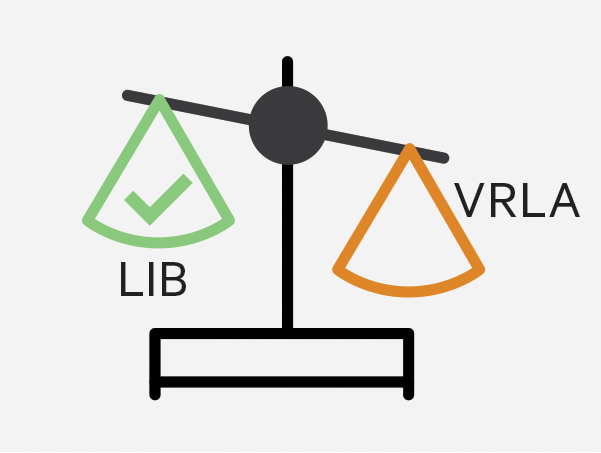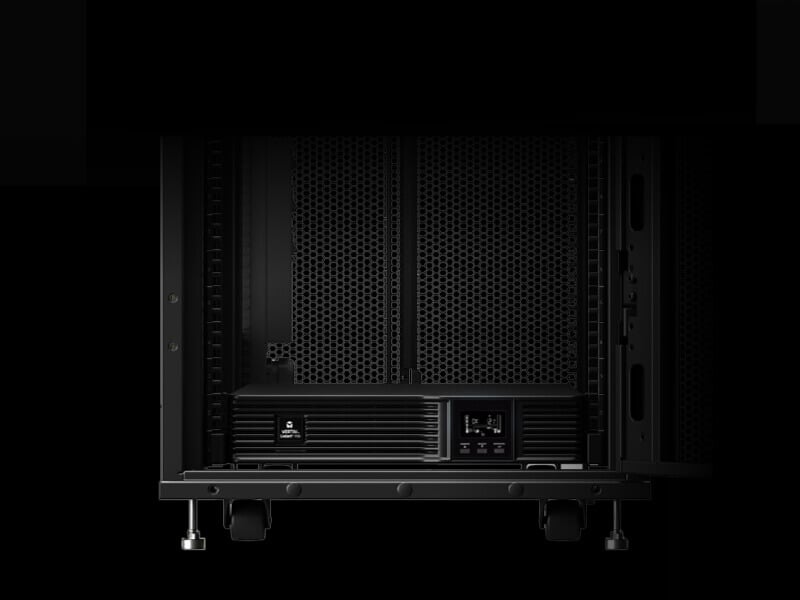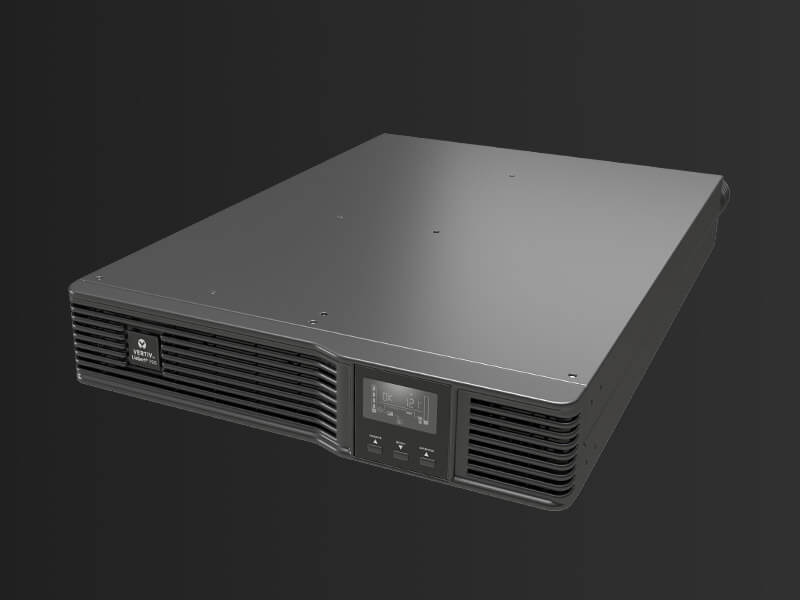The Future of Data Center Power Now
The same technology innovation that has enabled our on-the-go, yet connected lifestyles – the lithium-ion battery – has gone far beyond mobile devices and into the data center.
What was once considered the future of backup transitional power can be had now and it addresses many of the challenges operators have faced for decades with uninterruptible power supplies (UPS) that have predominantly relied on cumbersome valve-regulated lead-acid (VRLA) batteries.
Lithium-Ion UPS Battery Benefits Versus VRLA
Lower Total Cost of
Ownership (TCO)

- Up to 50% savings over lifetime
Smaller and Lighter

- Easier to install
- Installation flexibility
- More runtime in same amount of space
Longer Life

- Lasts 8-10 years or more
- Fewer or no replacements
- Withstands higher temps without degradation
Longer Runtime

- Less than 4 hours for full recharge
Frequently Asked Questions
Q1. Are there different types of lithium-ion batteries?
A1. Yes. There are lithium cobalt oxide (LCO), lithium iron phosphate (LFP), lithium ion manganese oxide (LMO) and lithium nickel manganese cobalt oxide (NMC) chemistries to name a few. Our designers favor LFP and LMO, given their performance and safety parameters. These are the same technologies used by major automotive manufacturers in their electric cars.
Q2. Are lithium-ion batteries safe?
A2. The type of lithium-ion batteries that are often seen in the media because of overheating problems, known as thermal runaway, are mainly used in mobile phones and electric scooters. The chemistries used in UPS applications have far more stringent packaging designs. Our lithium-ion UPS battery solutions have a failsafe shutdown mechanism which is activated in the event of a problem.
Q3. What are the primary benefits of lithium-ion over lead-acid?
A3. Lithium-ion UPS batteries provide impressive power density levels. This means you need less space to deliver the same power. They tend to last longer, weigh less, recharge faster, and can operate at higher temperatures.
Q4. With such impressive benefits, what are the disadvantages?
A4. Predominately initial purchase price, currently on the order of 1.75 times that of VRLA. But a more complete TCO evaluation would include initial cost, installation cost, delayed replacement savings, nuisance value of the replacement, value of space saved, disposal expense, and maintenance costs.
Q5. Can a data center installation utilize a hybrid approach, whereby we mix battery technologies?
A5. If you mean mixing technologies within a unique UPS system, the answer is no. But if more than one UPS system exists, there is no reason you couldn’t operate different types of battery solutions on each.
Q6. Does Vertiv have specific experience with lithium-ion UPS batteries?
A6. Yes. Our engineers and product teams have been on the leading edge of integrating lithium-ion batteries into UPS systems and have fully studied and tested them since 2011. In fact, we have operational customer sites across several continents.
Lithium-ion Products & Related Services
Single Phase Lithium-Ion UPS Total Cost of Ownership (TCO) Calculator
Additional Resources

- How the role of lithium-ion batteries differs in traditional versus remote data centers
- Drawbacks of lead-acid batteries
- Attributes of the varying lithium-ion battery chemistries
- Advantages of lithium-ion batteries for UPS applications

- Life expectancy of lithium-ion batteries in stationary applications
- Projecting run times for lithium-ion batteries
- Lithium-ion battery safety and impact of fire codes







